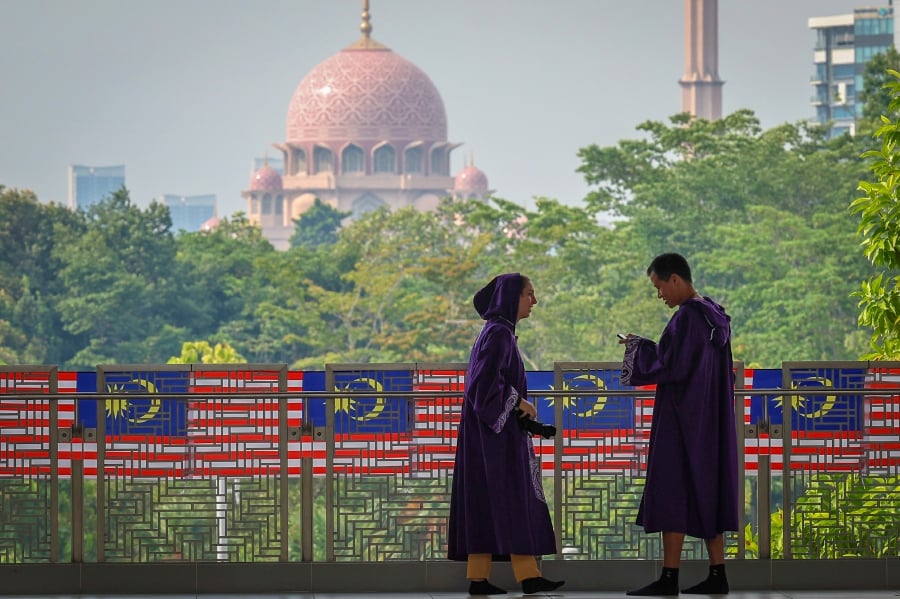SINCE ancient times, nation states have vied for power and influence.
Ancient Mesopotamia and Egypt built colossal monuments, such as pyramids, palaces and temples, to obtain reverence from other nations.
Ancient Rome, Persia, China and India built massive infrastructure and governance systems to establish their pre-eminent position in their regions.
Military conquests added to their supremacy.
Today, we also witness countries competing with one another, not outdoing others through monumental buildings or conquests, but through seeking premier global rankings in innovation, competitiveness and rich-nation status.
This obsession with superior rankings motivated China, for example, to climb nearly 50 spots in 2020 in the World Bank ease-of-doing-business index from 78th spot in 2018.
Such influential rankings burnish nations' reform credentials. Higher rankings afford them easier access to high-end technologies, talent and foreign direct investment (FDI), the quintessential elements for productivity and gross domestic product (GDP) growth.
What about those countries that do not make it to the top?
Apart from being challenged by their high targets, these countries can learn from those at the top about the improvements that need to be made to reach these coveted positions.
It is for these advantages that Malaysia jumped on the bandwagon in the mid-1990s when the then prime minister Tun Dr Mahathir Mohamad envisioned Malaysia to be a rich nation by 2020.
The Madani Economy framework, the defining policy of Prime Minister Datuk Seri Anwar Ibrahim, has also established ambitious targets for 2030.
These are that Malaysia will be among the top 30 largest economies in the world, in the top 12 in the global competitiveness index, in the top 25 in the Corruption Perception Index, and in the top 25 per cent in the human development index.
These targets are interrelated. Human development and good governance augur well for competitiveness and consequently, higher wages and national income.
A study of the wealthiest nations suggests three important strategies for Malaysia to become among the top 30 largest economies. First, there is a positive correlation between wealth and innovation.
Germany, for example is ranked eighth among the most innovative economies. It is also the 18th richest economy in the world.
In contrast, Malaysia ranks 36th in the global innovative index, and we are ranked 37 by gross domestic product (GDP).
To spur innovation, rich nations spend between three and four per cent of their GDP on research and development (R&D).
Countries such as Switzerland, Denmark and Germany promote R&D collaboration between government and businesses.
It, therefore, behoves Malaysia to triple R&D expenditure and intensify public-private R&D collaboration if it wants to catapult itself to rich-nation status.
The Madani Economy sketches the need to develop a culture of innovation.
Switzerland and South Korea cultivate an innovation culture that is adept at commercialising ideas.
The Netherlands, the country that gave us Bluetooth and wifi, is also soaked in an experimental culture.
Second, Malaysia has an advanced network of infrastructure that supports competitiveness.
However, its digital connectivity requires a boost.
Malaysia ranks 46th in the world for mobile speed and 39th for fixed broadband.
In contrast, Singapore, the second-richest country in the world by per capita income, is ranked 25th for mobile speeds and first for fixed broadband speeds.
By promoting good governance, a stronger digital system can nurture a business-friendly climate that attracts multinationals such as Tesla.
Such FDI and the talent and technology they bring can propel us to premier global ranks.
The third strategy is to upgrade our education system so that it produces a skilled workforce.
Singapore, the United Kingdom, China and Germany are economic powerhouses because they focus on science, technology, engineering and mathematics (STEM).
'The government should promote STEM education to produce a workforce that facilitates productivity improvements.
Productivity and national wealth have always been a function of technology, good governance and human capital development. Notwithstanding, in our push to become one of the top 30 largest economies, the government should not be distracted from its task of eliminating absolute poverty and income inequality.
The writer is AIMST University vice-chancellor





